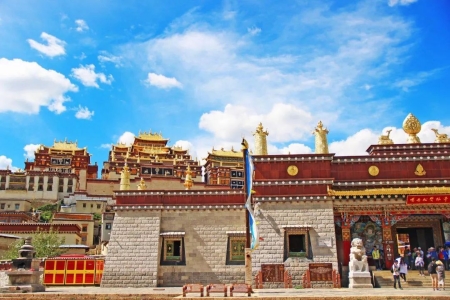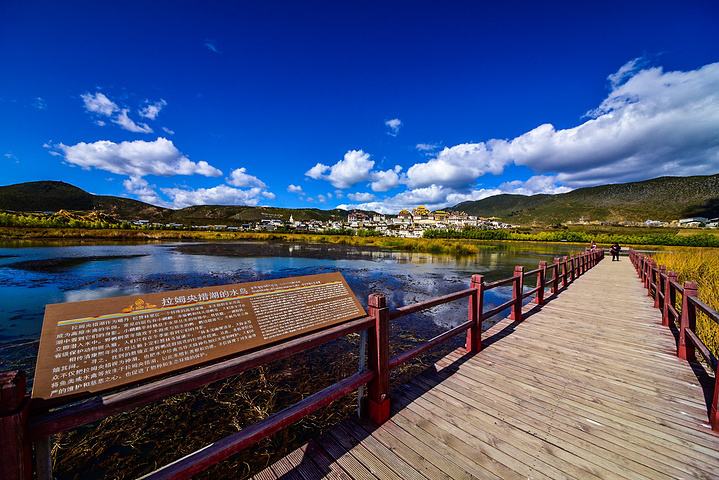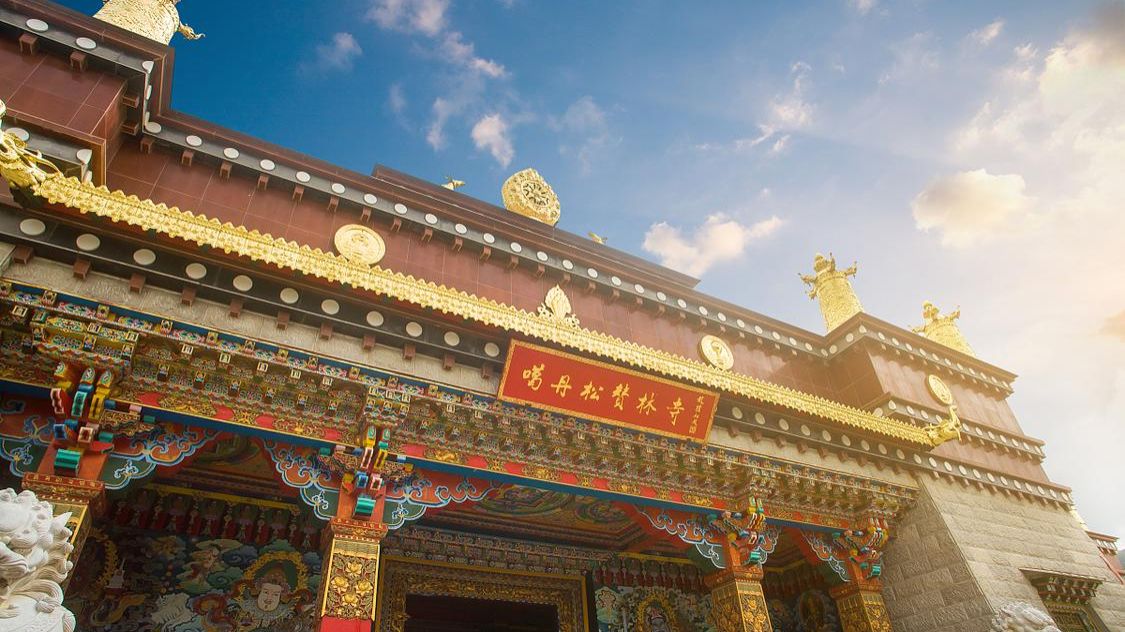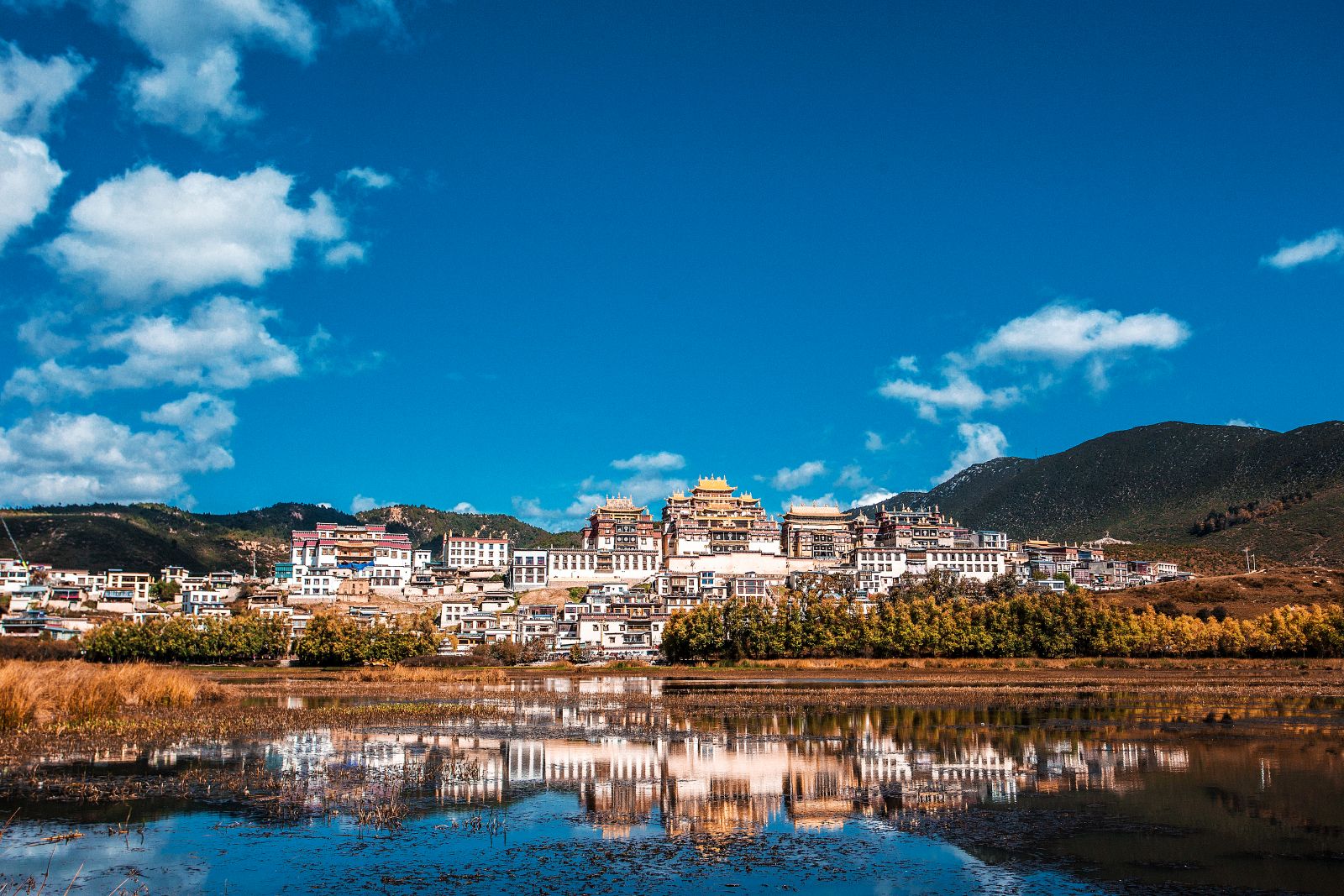Chinese Name: 松赞林寺 Pronunciation: sōng zàn lín sì
Opening Hours: 8:00-18:00
Occupied Area: About 33 hectares
Building Time: 1679
Recommended Time for Visit: 3-5 Hours
Best Visiting Season: Spring and Autumn (March to May, September to November)
Building Function: A Temple to promote Tibetan Buddhism and expound Buddhist sutras.
Address: Jingxiang Road, Jiantang Town, Shangrila County, the Diqing Tibetan Autonomous Prefecture, Yunnan Province
Popular Activities: Gedong Festival (Monks wear various masks such as the ox head, horse head, etc., to celebrate the harvest and pray for the new year in safety and the country in peace.)
| Visitors | Price |
| Adults, age 18-59 | 115 yuan |
| Children age 6-17 or seniors age60-69 (with valid ID certificate) | 75 yuan |
1.Children at or below 1.2m
2.The elderly over 70 (with valid certificates)
You can take sightseeing cars from the ticket office to the gate of the monastery (for free).

It was one of the "Thirteen lins" ordered by the fifth Dalai Lama and Emperor Kangxi of the Qing Dynasty to be built in 1679. It is not only the largest cluster of Tibetan Buddhist Temple in Yunnan, but also the center of the Yellow Sect(黄教) in Sichuan-Yunnan region, which is known as the "little Potala Palace”.
Embraced between mountains, the Songzanlin Monastery boasts brilliant architectures, plenty of religious instruments and cultural relics. It is also reputed as the “Tibetan Art Museum”, a collection of Tibetan plastic arts.
In the 18th year of Emperor Kangxi of the Qing Dynasty (1679), the monastery began to be built and was finished in 1681. The fifth Dalai Lama named it “Gedan Songzanlin”.
In 1936, the Red Army led by generals He Long and Xiao Ke got help from the monks in Songzanlin as they passed Shangrila. To express the appreciation for their assistance, General He sent a Hada (a piece of silk used as a greeting gift) writing “xing sheng fan zu“ (兴盛番族) to the monastery, which was recorded in the history of the Chinese revolution.

Located opposite the Songzanlin Monastery, the lake boasts an attractive landscape and a meaning of “the lake of the Holy Mother’s soul”. It serves as a habitat of various waterfowl such as black-necked cranes and ruddy shelducks.
It has a total area of 1500 square meters and a height of 39.6 meters. There are 24 exceedingly high posts, and it is the place where all monks chant together.

The legend goes that as the sixth Dalai Lama passed away, the successor (namely the seventh Dalai Lama) was reincarnated. However, Lhasa Khan, the king of Heshuote Tribe of Mongolia, intended to kill him, and he was sent to Songzanlin for refuge with the monks’ help.
Provided with milk every day, he poured a half into the river. Then, the river was called “milk river” (奶子河), praying for the blessing of all.
As he took control of the power, he paid back to the Monastery and ordered to build the Zong Keba Basilica.
Take bus 3, and get off at Conggulong Songzanlinsi Station.
Take bus 16, and get off at Songzanlin Sineitingchechang(parking lot of Songzanlin Temple) Station.
Chinese: 请带我去松赞林寺。English: Please take me to the Songzanlin Monastery.
If you go to the Songzanlin Monastery from the center of Shangrila, it takes about 15 minutes (about 20 yuan).
If you go to the Songzanlin Monastery from Diqing Shangrila Airport, it takes about 20 minutes (about 30 yuan).
